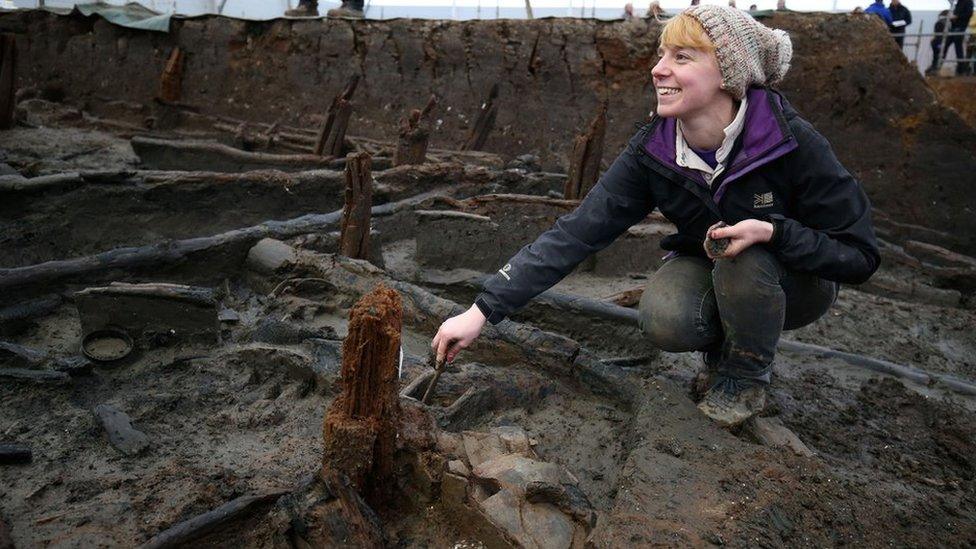Bronze Age elder's skeleton found at Cambridgeshire dig
- Published
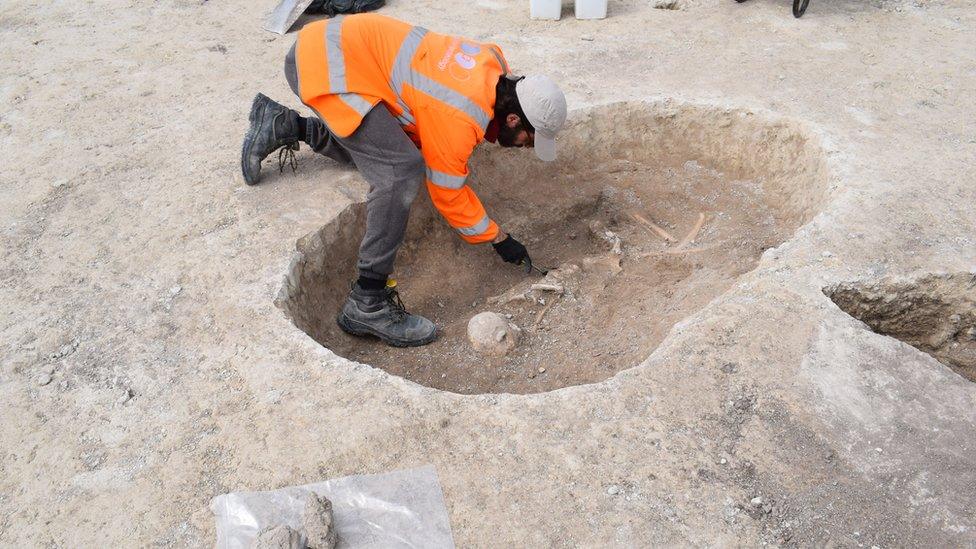
The man's body was buried in a crouching position in the grave at Burwell, near Newmarket
The skeleton of an early Bronze Age "village elder" has been discovered in a funerary mound during an excavation.
It was unearthed at Burwell in Cambridgeshire, close to the site of a prosperous and well-established later Bronze Age village.
The body was of a "relatively muscular" man, who was at least 40 years old.
The mound was topped with a timber post so people could see "someone of importance was buried here", according to archaeologist Louise Moan.
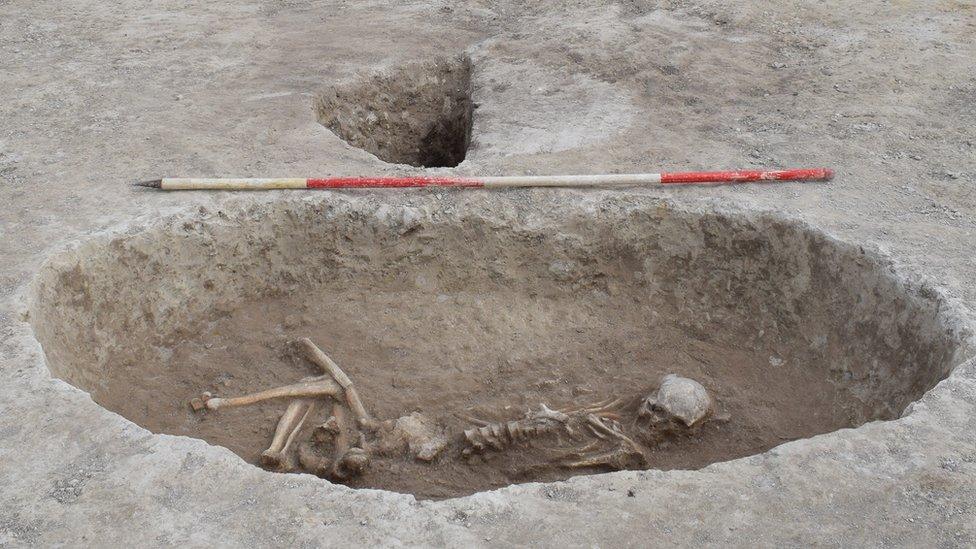
It would have been wrapped in position before burial but its "untidy position" suggest the wrappings loosened as it was placed in the large hole
Oxford Archaeology East, external project manager Ms Moan said the skeleton was remarkably well-preserved considering it was found in acidic chalky soil and it was dated to between 2500BC and 2000BC.
It was buried in a funerary monument, encircled by a ditch with earth mounded in its centre.
Ms Moan said: "He must have been someone of importance to have a monument like that, some sort of village elder, who was strong and had worked the land for years."
The dig, which has been taking place ahead of a housing development by This Land, also uncovered a much later Bronze Age village of about 50 people, dating from 1100BC to 800BC.
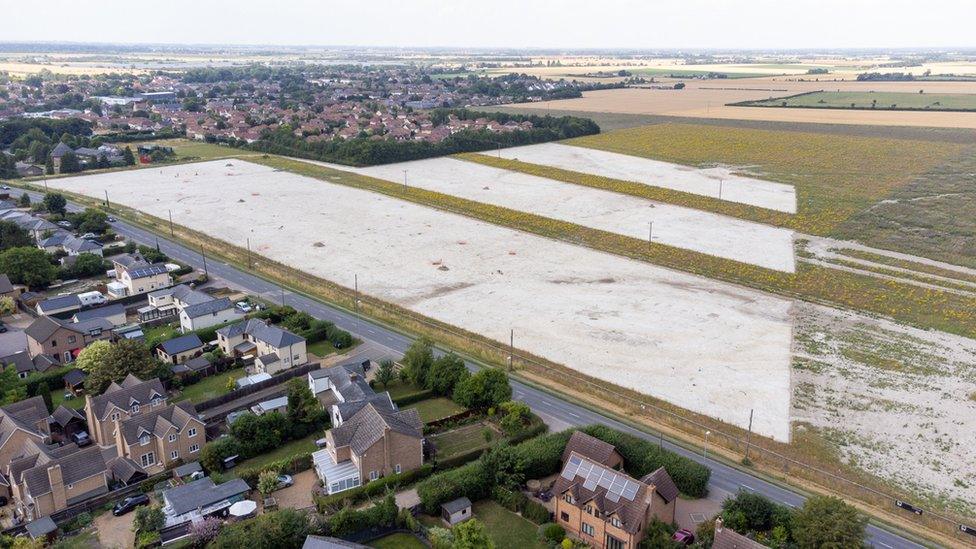
A prosperous late Bronze Age village grew up centuries later close to the man's burial mound
The settlement lasted at least 300 years and finds suggest it was a prosperous one, making its own weapons and having extensive trade links.
Ms Moan said: "We discovered a mould for casting an axe head from bronze which is quite rare - they usually got smashed as part of the production."
A fragment of shale bracelet was unearthed - made from a type of dark, shiny polished rock - which was imported from Europe.
Further analysis will be done on all the finds and the dig will continue until the end of the year.

Find BBC News: East of England on Facebook, external, Instagram, external and Twitter, external. If you have a story suggestion please email eastofenglandnews@bbc.co.uk, external
Related topics
- Published24 March 2021
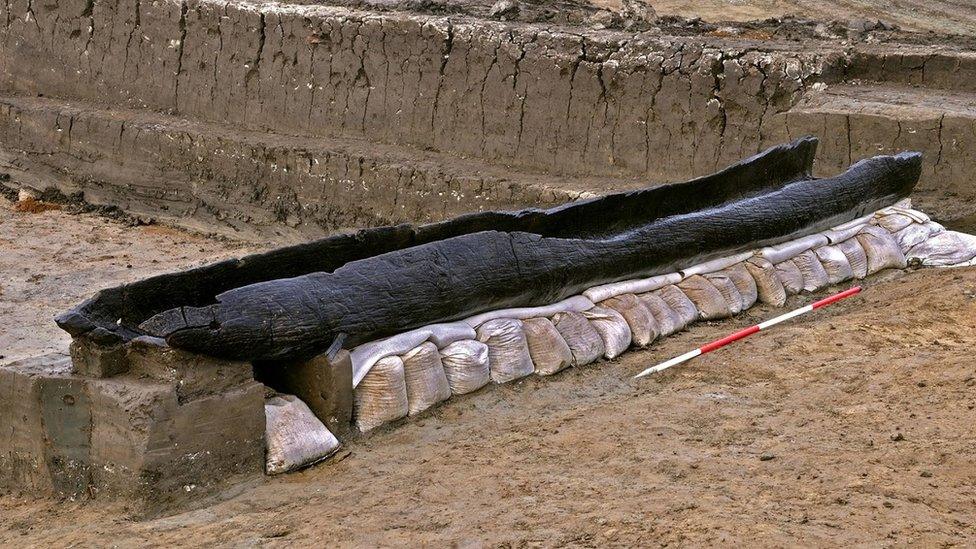
- Published23 July 2019
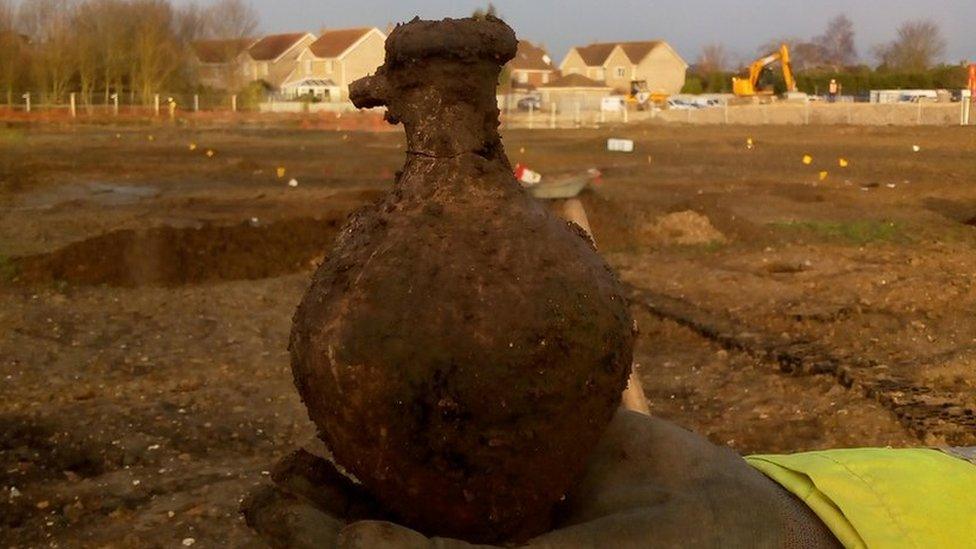
- Published12 January 2016
